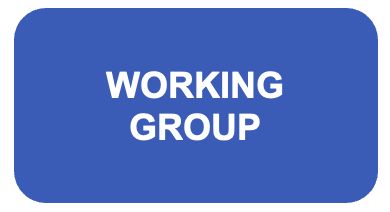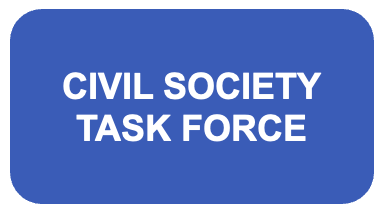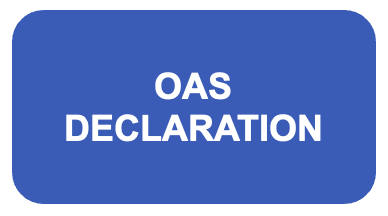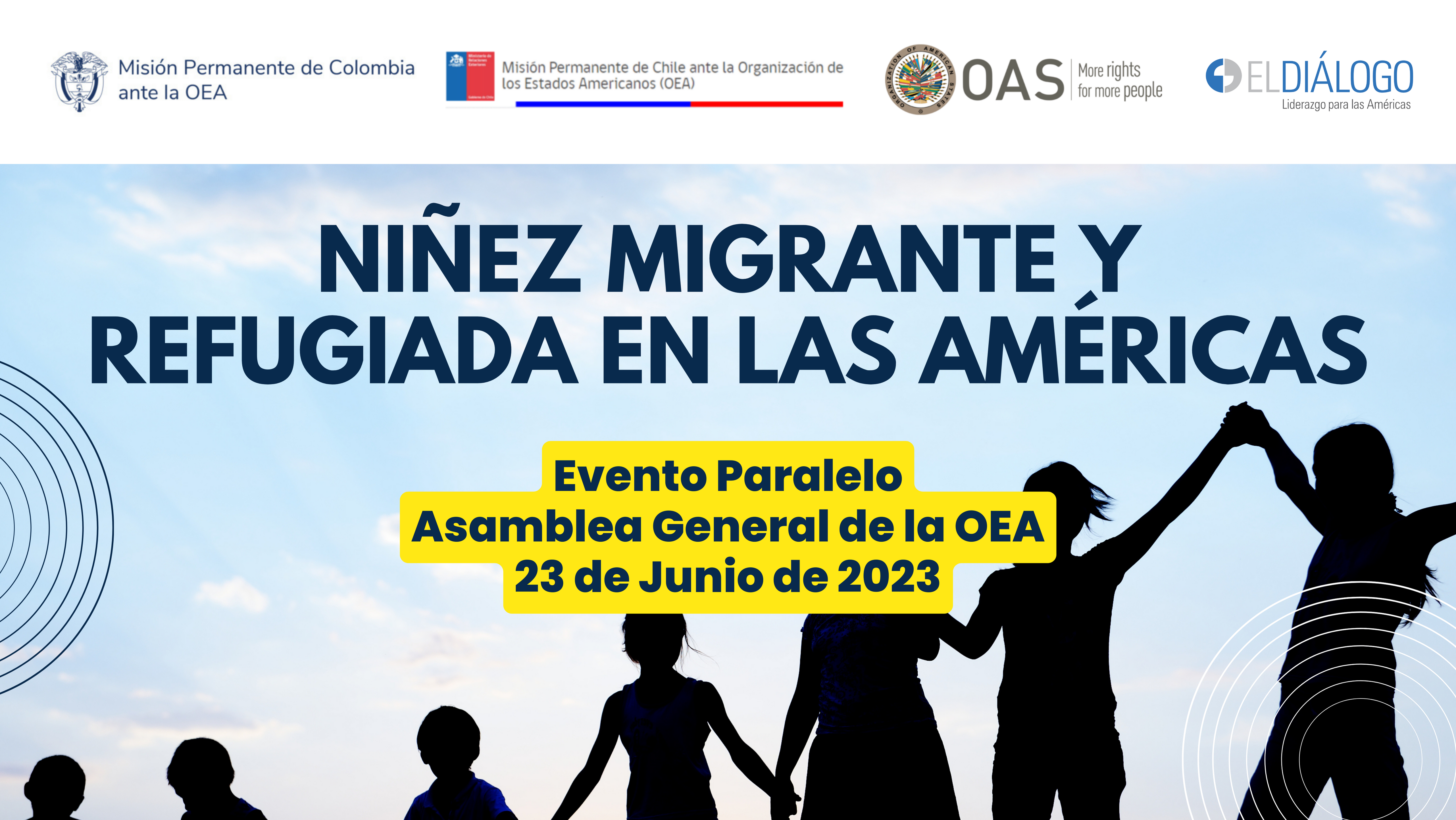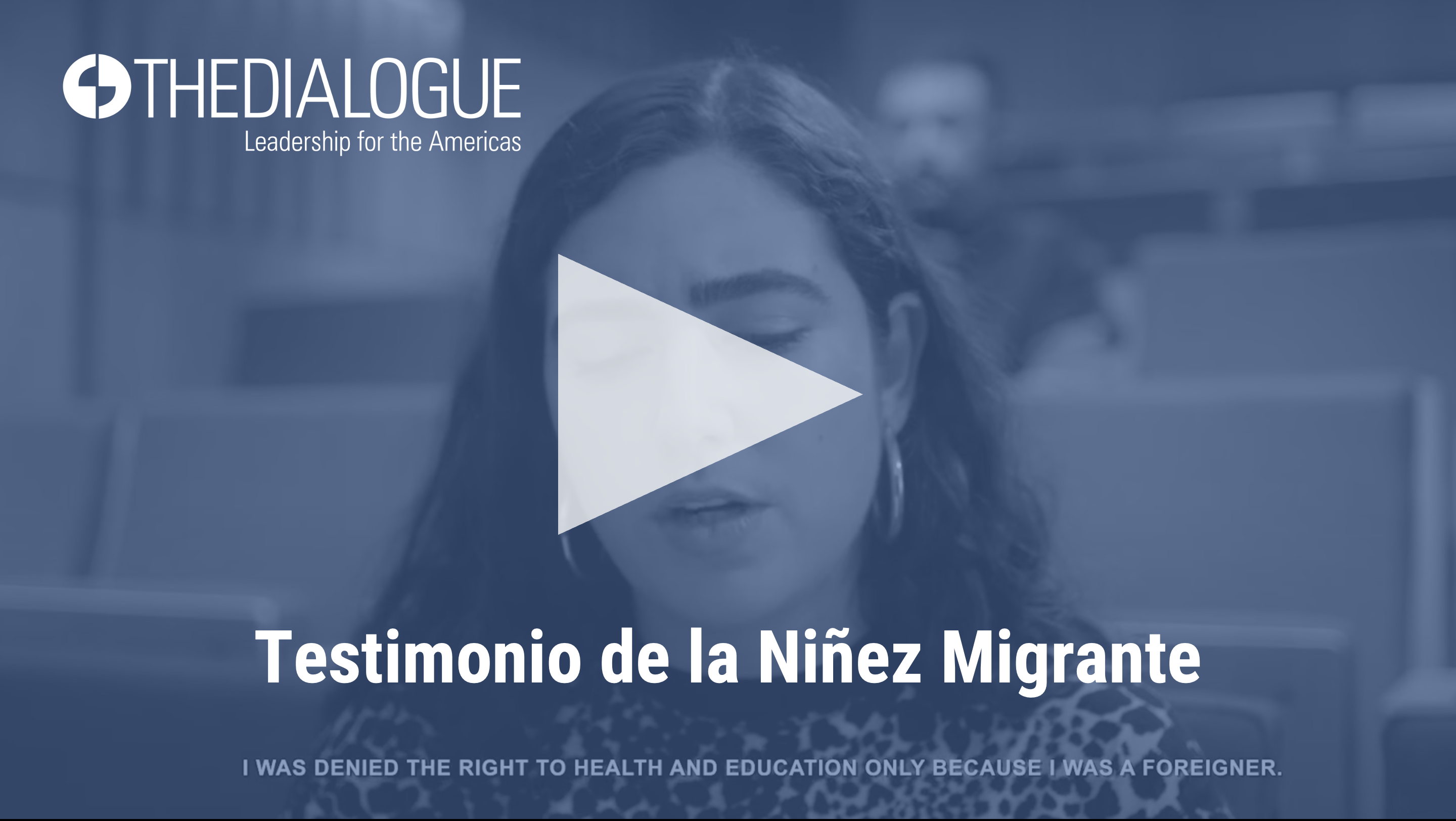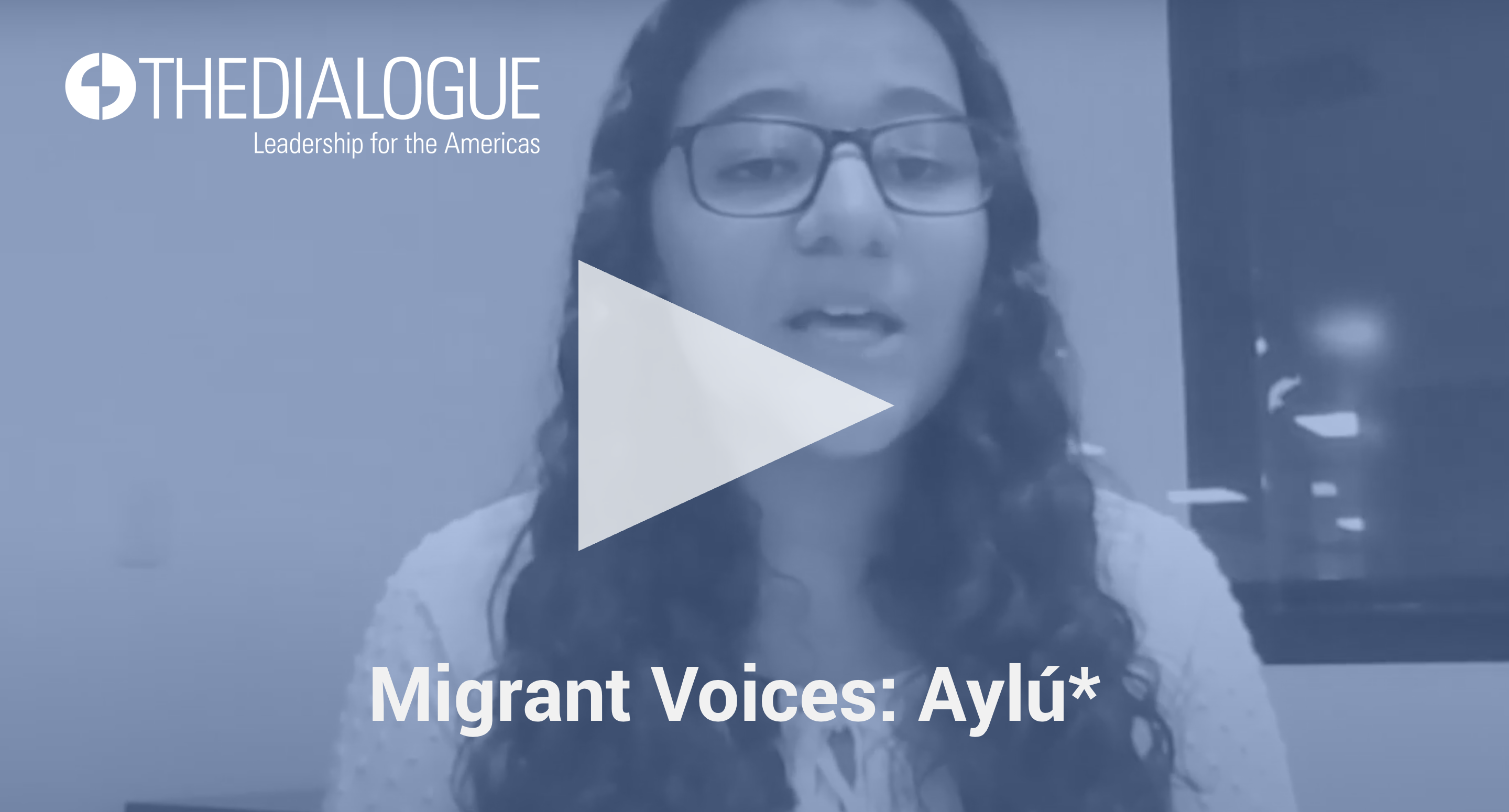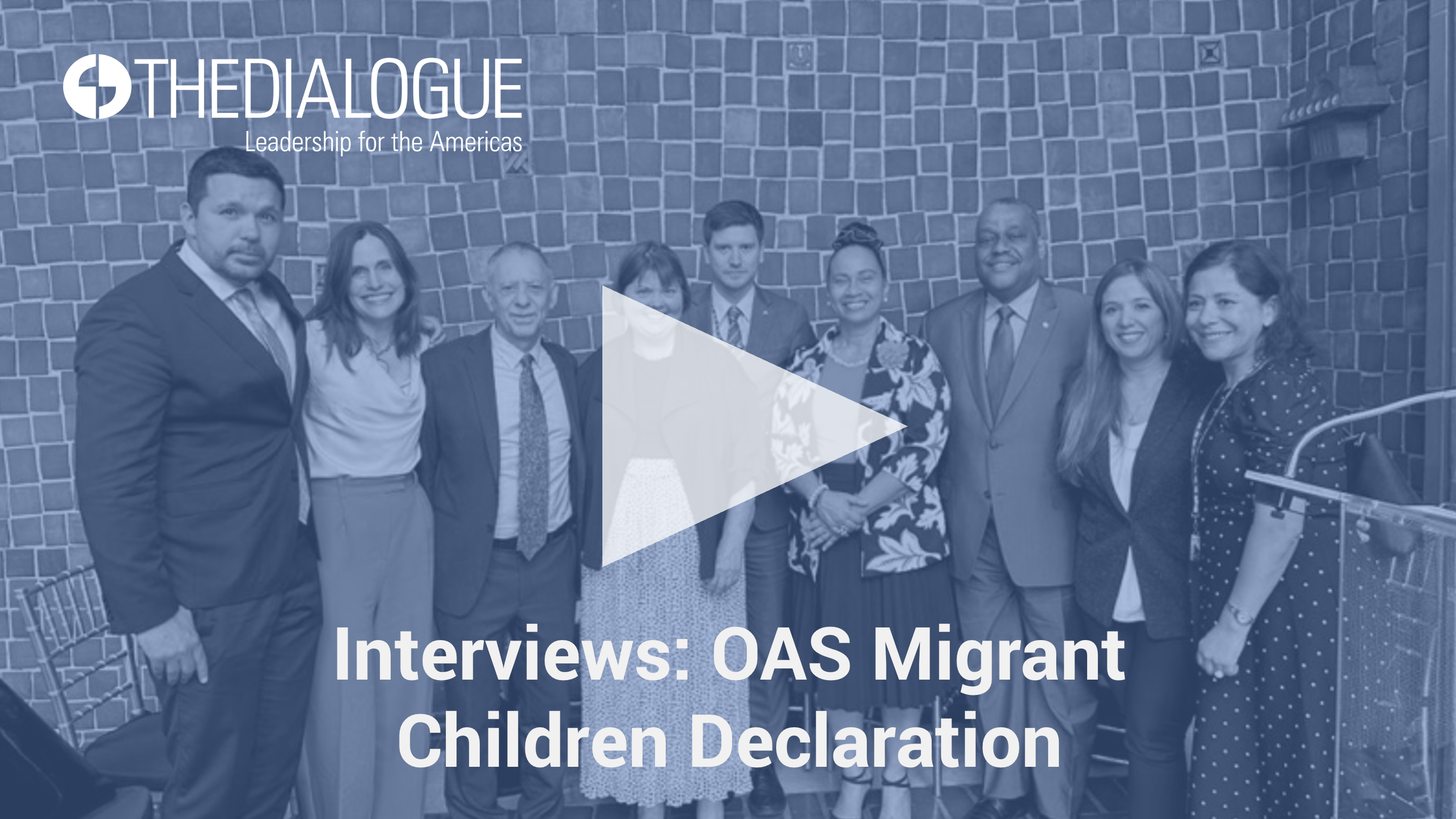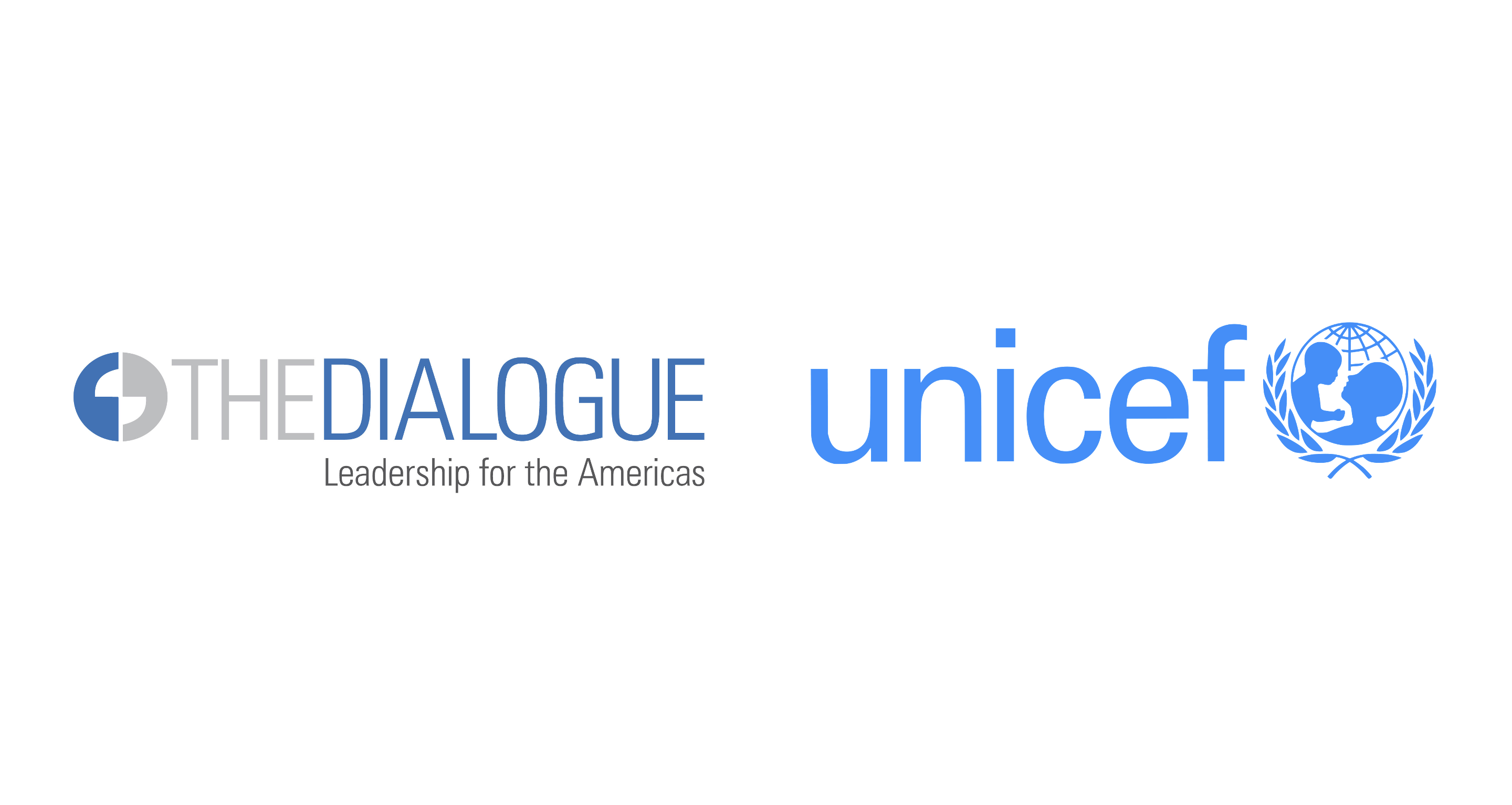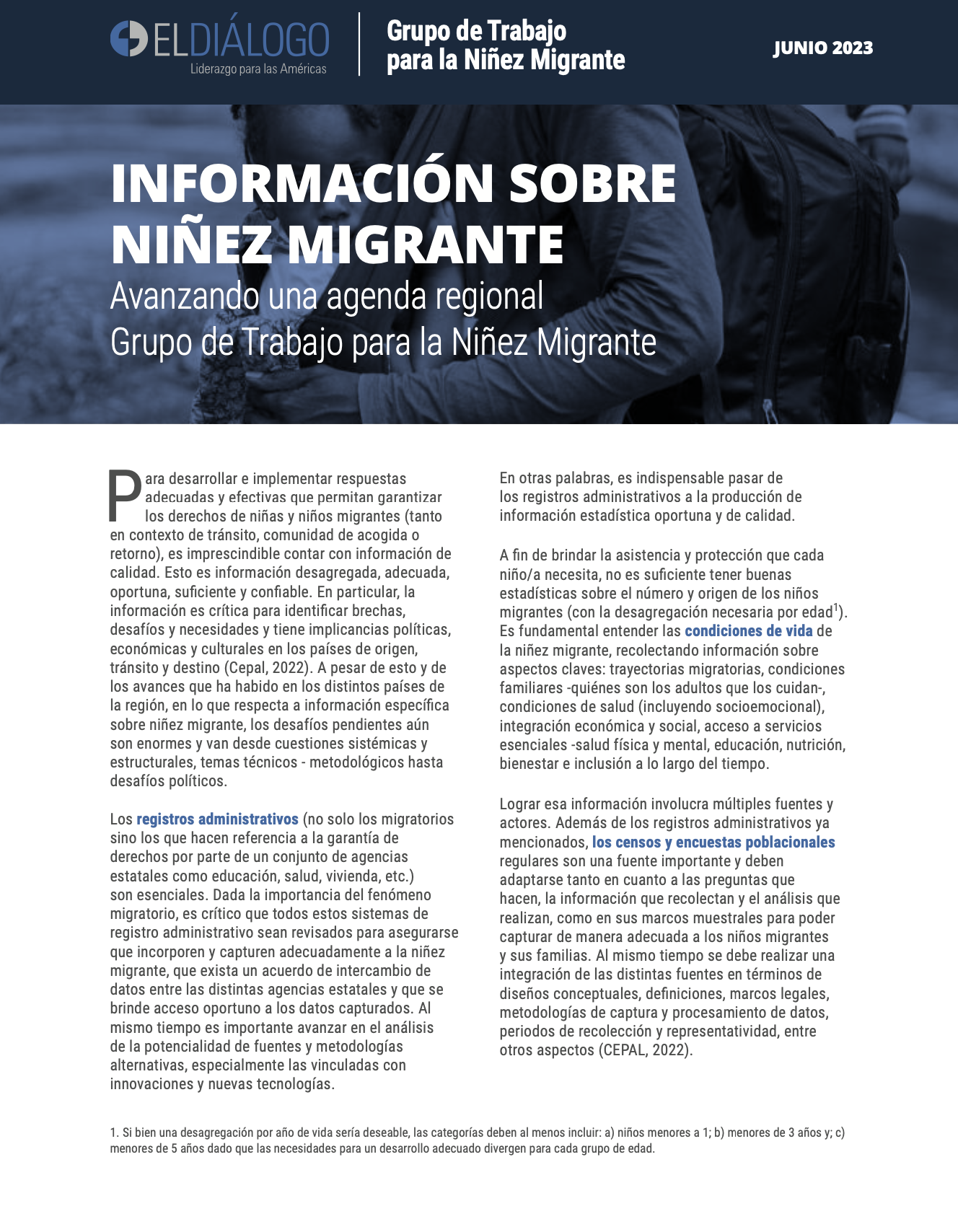Migrant and Refugee Children and Adolescents in the Americas
This post is also available in: Spanish
Starting in 2022, the Inter-American Dialogue has initiated a line of work focused on migrant children.
Latin America and the Caribbean are experiencing the largest flow of migrants in the history of the region. Hundreds of thousands of people are forced to migrate as a result of the convergence of factors such as violence, poverty, inequality, hunger and food insecurity, political instability, and persecution, as well as the impacts of natural disasters and climate change. Regarding children and adolescents, UNICEF estimated that by 2022, these kinds of migrants could reach 3.5 million. This figure, which includes migrant children and adolescents and those living in host communities, represents an increase of 47 percent compared to 2021.
Migrant children and adolescents are in a “double” situation of vulnerability due to their age and migratory status. This poses political challenges for the region’s countries and requires specific and adequate protection of the rights of children and adolescents by the States and the different actors involved. The needs of migrant children and adolescents, especially the youngest ones, are not sufficiently visible, which translates into a lack of policies, programs, and legislation focused on protecting their rights and providing the minimum conditions for development, well-being, and dignified life.
This situation demands urgent regional, national, and local actions by all States and other relevant actors to guarantee children and adolescents the full exercise of their rights.
Convinced that migrant children are not a cross-border issue between a few countries but rather an issue that brings together the entire region, the Inter-American Dialogue has formed a working group that will seek to ensure that the rights of migrant children and adolescents have no borders.
About the Working Group
Aware of the enormous challenge to be faced and the value and potential of a regional platform, the Inter-American Dialogue convened relevant regional actors to form a working group. This group is made up of government representatives, civil society leaders, experts in migration and early childhood, international organizations, and cooperation agencies.
The purpose of the group is to generate a regional consensus on the most effective mechanisms to guarantee the full exercise of the rights of migrant children and thus ensure that a greater number of migrant children have access to the services and development opportunities they need. To this end, the group meets periodically to develop proposals and serve as a spearhead to promote changes in the policies and programs of the different countries in the region.
Civil Society Task Force
The situation of migrant children on the American continent is a topic of strategic importance, not only because it is a phenomenon whose impacts can be seen in all the countries of the region but also because early childhood is the most important period of development in life.
In this context, the efforts made by the different actors – the State, local governments, civil society, and the private sector – are fundamental and, at the same time, require coordination and articulation to strengthen them, mobilize more resources, and improve their use.
In this context, the Inter-American Dialogue convened civil society organizations that are implementing initiatives to address the challenges faced by migrant children. They were invited to be part of a process of exchange and collaboration, possibly leading to agreements and commitments to build better synergies and strengthen the voice of civil society.
OAS Declaration for the Protection and Integration of Migrant and Refugee Children and Adolescents in the Americas
In the framework of the 53rd General Assembly of the Organization of American States (OAS), in June 2023, the Declaration for the Protection and Integration of Migrant and Refugee Children and Adolescents in the Americas was adopted, in which the States of the region made a commitment to migrant children.
The Declaration provides a starting point on which to continue building and involves different actors; emphasizes the need to strengthen regional cooperation measures for safe migration with a focus on shared responsibility; and highlights the importance of coordinated management by the different actors to address the structural causes of irregular migration.
This Declaration is a very important step towards guaranteeing the full exercise of the rights of all migrant children in the region, which is why the Inter-American Dialogue carried out actions to disseminate and promote the Declaration, with the aim of giving visibility to this commitment and the measures taken.
Actions to promote the OAS Declaration on the Protection of Migrant and Refugee Children
Documents
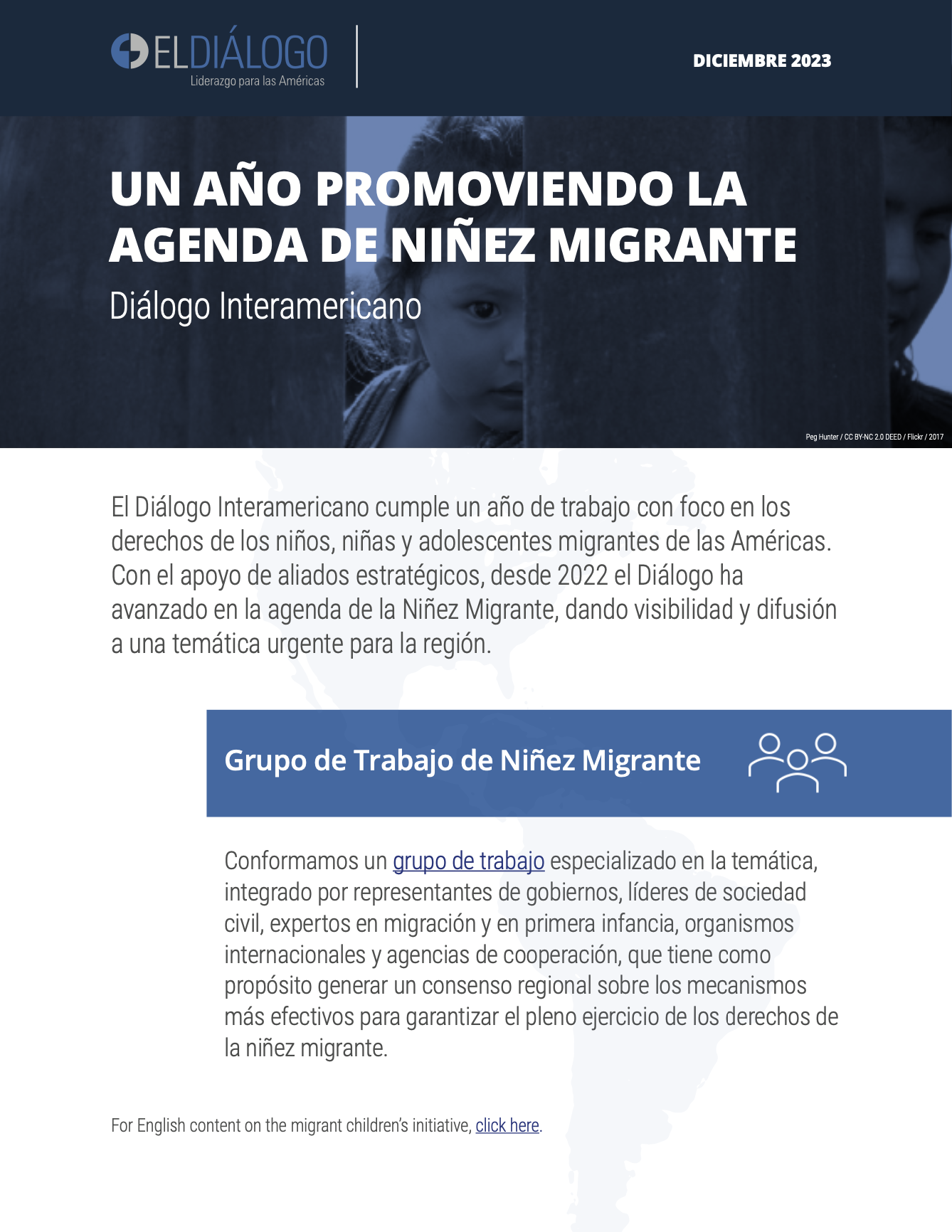
December 2023 – One Year of the Migrant Children Initiative
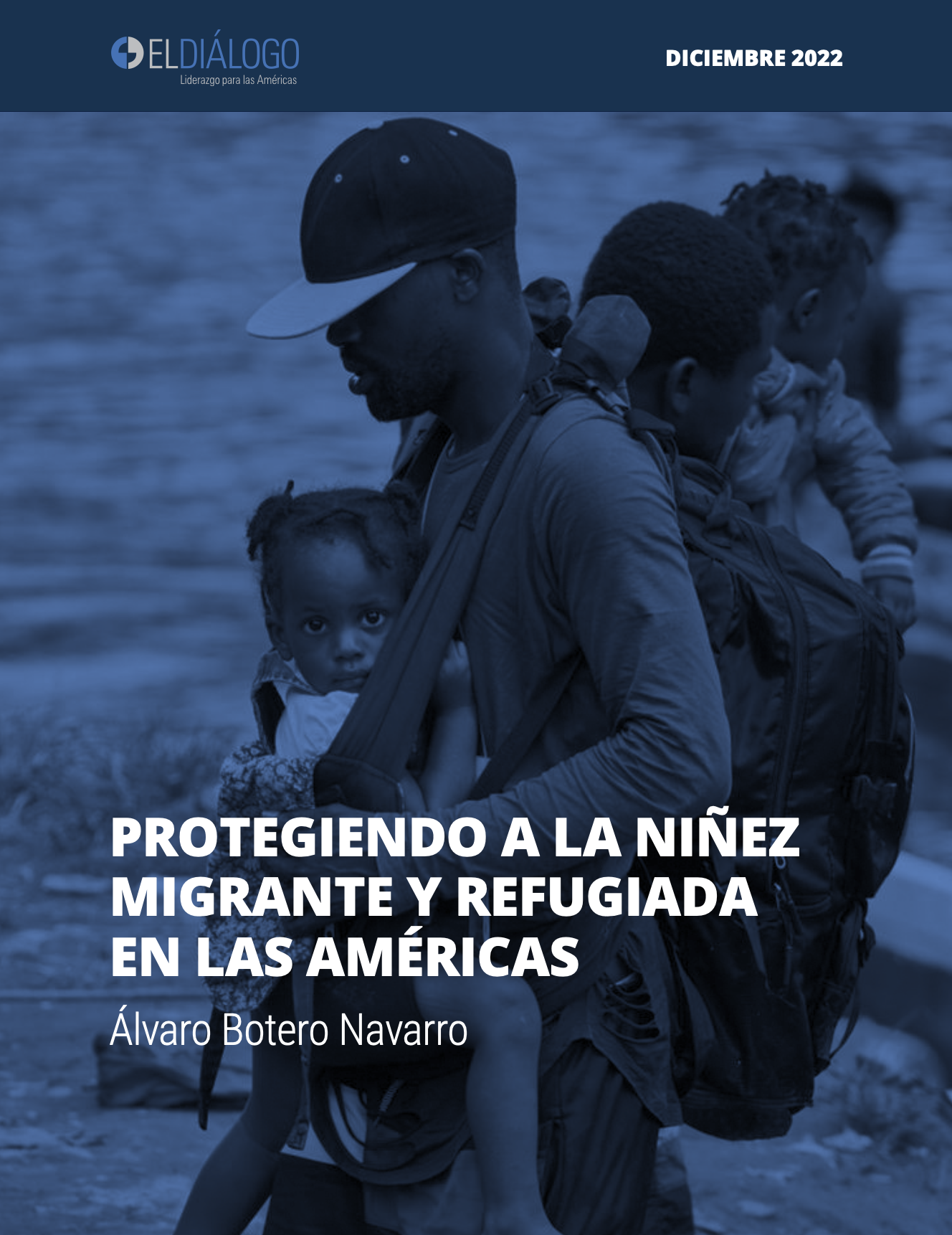
December 2022 – Protecting Migrant And Refugee Children in the Americas
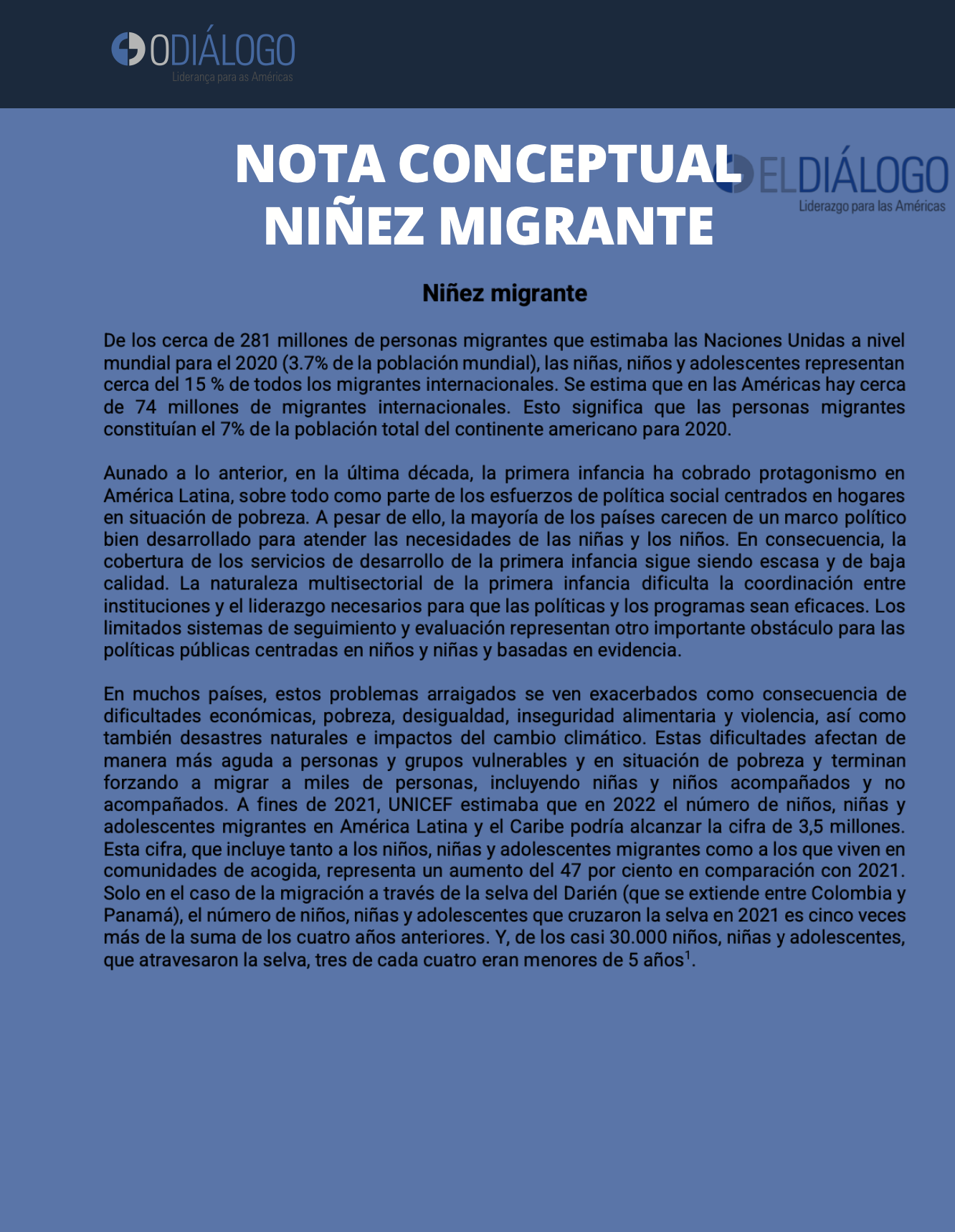
December 2022 – A Concept Note on Migrant Children
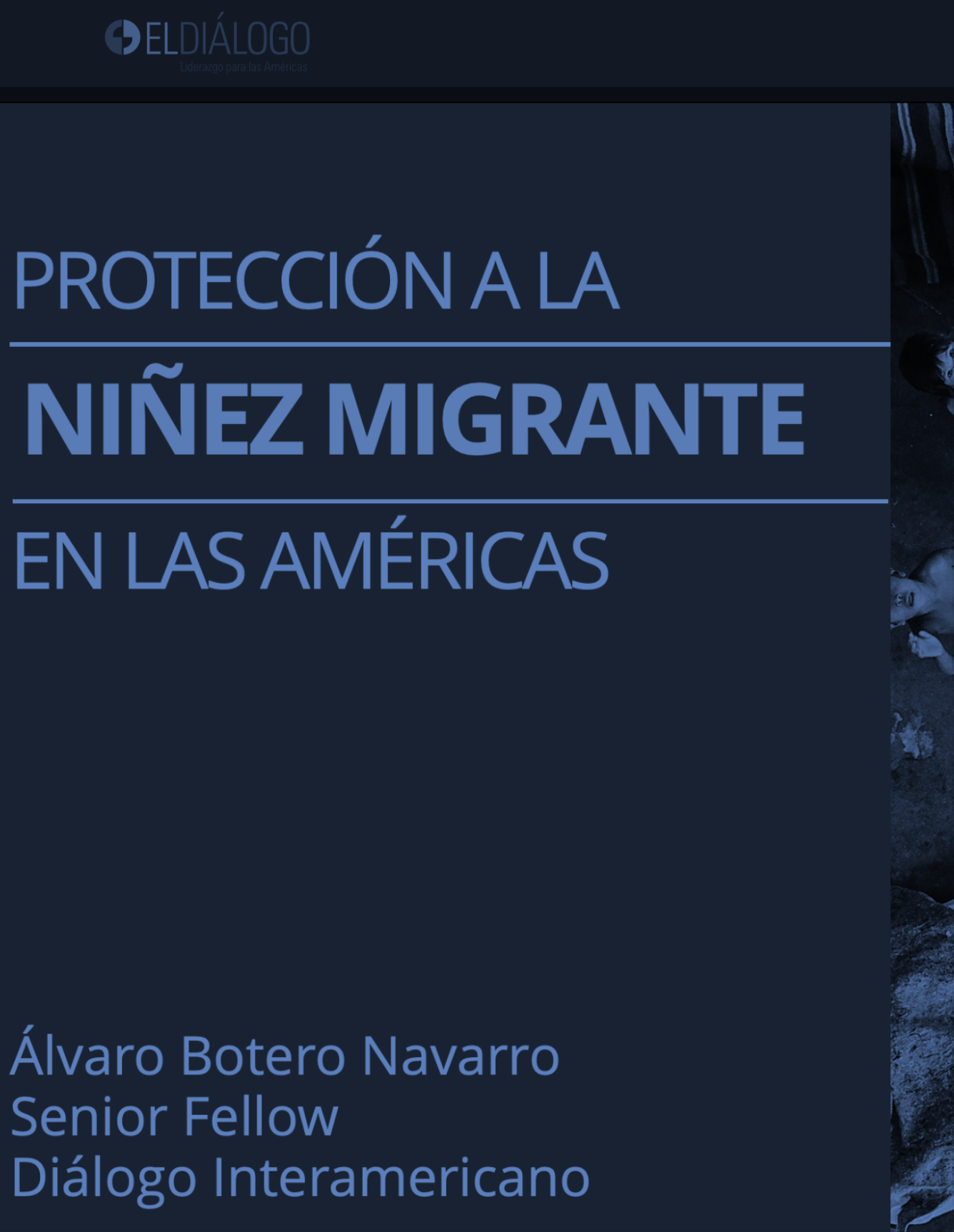
November 2022 – Child Migration Protection in the Americas
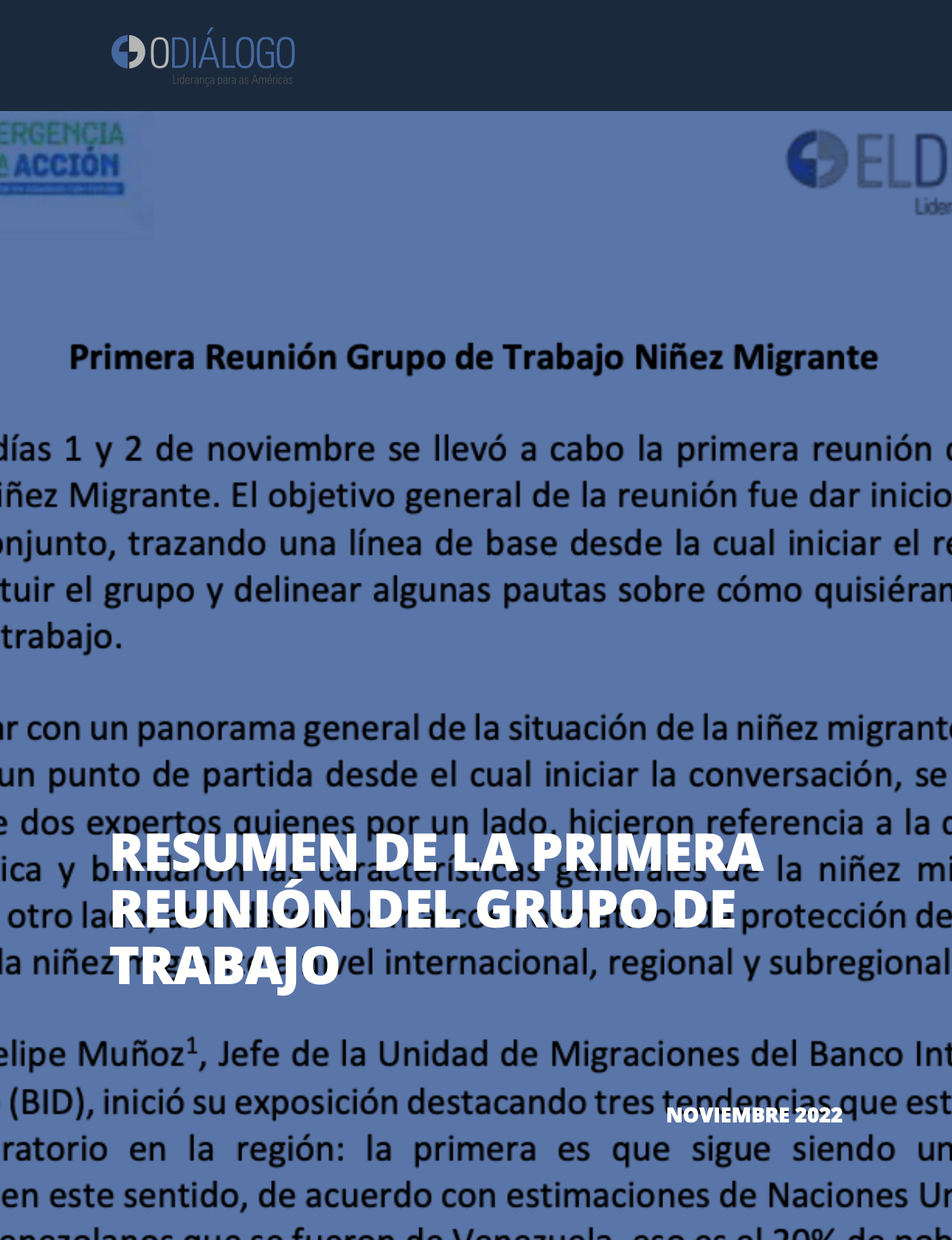
November 2022 – Summary of Migrant Children Working Group’s First Meeting
Events
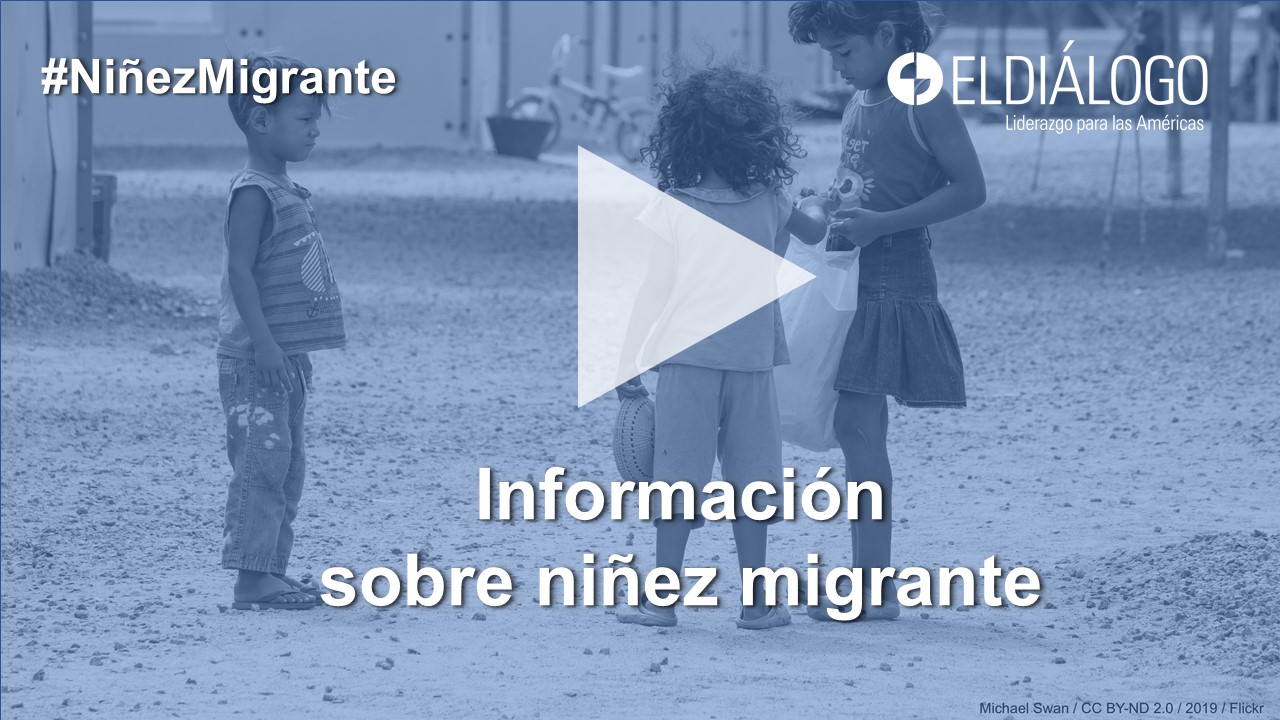
April 2023 – ONLINE EVENT: Information About Migrant Children




















